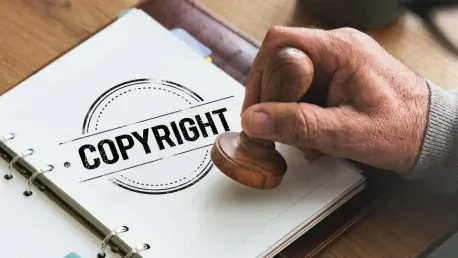In an age where artificial intelligence is creating everything from artwork to music compositions, the question of whether AI-generated content qualifies for copyright protection has drawn significant legal attention. The recent decisions by U.S. courts focused on whether works created by artificial intelligence can receive the same legal protections as those produced by human authors, bringing the issue into sharp focus.
The Case of the Creativity Machine
Thaler’s Pursuit of Copyright
The court decisions originated with computer scientist Stephen Thaler and his AI, the Creativity Machine, which generated an image titled “A Recent Entrance to Paradise.” Thaler applied for copyright on the AI-created artwork, but from 2018 to 2020, the U.S. Copyright Office consistently rejected his application. Thaler did not back down. Instead, he filed a formal complaint against the Copyright Office in 2022, arguing that existing copyright laws fail to differentiate adequately between human-made and machine-made works.
His complaint posited that some AI-generated works might inadvertently receive copyright if their AI origins were not disclosed. Thaler introduced the idea that AI creations could pass off as human-made, citing Alan Turing’s test, which proposes that a machine’s output could be indistinguishable from that of a human under certain conditions. This raised profound questions about the authenticity and ownership of AI-generated content.
Judicial Responses and Decisions
In response, the U.S. District Court for the District of Columbia ruled against Thaler, emphasizing that the Copyright Act of 1976 only recognizes human authors. The court pointed out that Thaler’s application had listed the AI as the sole author, which directly led to its rejection. Unfazed, Thaler decided to escalate the matter to the U.S. Court of Appeals for the District of Columbia Circuit.
The appellate court delivered its verdict in November 2023, siding with the lower court’s conclusion that AI cannot be recognized as an author under current laws. However, the court also made an interesting note that might influence future cases. It suggested that works created with substantial human involvement, even if AI was part of the process, could potentially qualify for copyright. The court did not clarify the exact extent of human contribution required, leaving some ambiguity for future deliberation.
Human Authorship and Legal Framework
Defending Human Authorship
These rulings highlight a strong judicial stance on the need for human involvement in creative processes to qualify for copyright. The consensus from the courts reiterates that the U.S. copyright law’s intention is to protect human creativity, which remains central to the Copyright Act. The courts appear to be prudent about extending copyright protection to machine-generated works, possibly because it opens a Pandora’s box of ethical and legal challenges.
It’s worth noting that Thaler’s high-profile case underscores the need for human oversight, even in highly technologically driven creative outputs. The significant takeaway is clear: As it stands, the legal framework demands human authorship for any copyright eligibility. The courts have succinctly maintained this position, reflecting a broader resistance to adapt copyright laws rapidly to evolving technological landscapes.
Implications for the Future
These legal decisions could serve as a reference point for future cases involving AI-generated content. With the rapid advancement of AI technology, it’s plausible to envisage AI playing an increasingly significant role in creative works. However, the rulings suggest that any statutory adjustments to accommodate AI-generated content would require careful consideration to ensure they align with the fundamental principles of copyright law.
As the courts have illustrated, there remains a necessity to balance technological innovation with legal standards that protect human creativity. Thaler’s case signals a need for ongoing discourse on how best to adapt intellectual property laws to reflect contemporary technological capabilities while safeguarding the essence of human authorship.
The Path Ahead
Navigating Technological and Legal Evolution
Looking ahead, there will be continued interest in how intellectual property laws evolve to accommodate advancements in artificial intelligence. Thaler’s persistent efforts spotlight the ongoing debate about AI-generated works and their place in the framework of existing copyright legislation. Given the courts’ reliance on the human-centric language of the Copyright Act, any significant changes to copyright laws will likely involve a congressional review and amendment to incorporate AI considerations.
This case provides an impetus for discussions among lawmakers, legal scholars, and technology experts on how to best reconcile the interests of human creators with the capabilities of AI. While current laws may not yet recognize AI as an author, the conversation around technological innovation and its legal implications is far from over.
A Call for Balanced Discourse
In a time when artificial intelligence is generating everything from paintings to musical scores, the matter of whether AI-created content qualifies for copyright protection has sparked significant legal debate. U.S. courts have recently been grappling with the question of whether works produced by AI can enjoy the same legal safeguards traditionally reserved for human authors. This legal conundrum has thrust the issue into the spotlight.
The rise of AI in creative industries raises complex questions about ownership and intellectual property. Are algorithms capable of authorship, or do the programmers and users of these AI systems own the rights? These are not just theoretical inquiries; they have real-world implications for artists, musicians, and developers. As AI continues to advance, it’s crucial for legal frameworks to evolve in tandem, ensuring that both human and AI-generated content are fairly protected or else risk stifling innovation and creativity. This ongoing legal exploration will shape the future of AI in creative realms.









